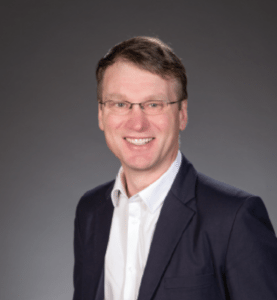Behind the Foundation
16/10/2017
The thing that Associate Professor Greg Jones likes most about the Otago Medical Research Foundation is its role in incubating research.

Greg is the deputy chair of the Foundation’s Scientific Committee, which is responsible for deciding on funding application recipients for two grant rounds per year, as well as selecting summer studentships.
He says it’s immensely satisfying to know that what they do makes a difference to the region’s researchers and to the community.
“I like that we support such a wide range of research, from basic to applied – everything from cellular processes to patient experiences and quality of life studies.”
He says it’s particularly important to recognise the vital role the Foundation has in investing in promising ideas.
The Foundation helps to fund medical research projects and scholarships which are highly novel and scientifically worthy, but due to their early exploratory nature don’t always attract the interest of larger funding agencies.
“Our investment has therefore been the impetus for some worthy research. It’s great to see some of these projects blossom into major research programmes that attract national funding, often into the millions of dollars, many of which may not have gotten off the ground without this type of incubator.”
It’s also rewarding to be in a position of investing in people.
“It’s unfailingly impressive to see what research outcomes the summer studentship recipients can achieve in 10 weeks. But not only are we funding good research, I love that we are seeding a passion for science – the opportunity lights a spark for those who go on to either begin a career in research, or to incorporate research into a clinician role. It’s a very good investment.”
Some esteemed alumni have gone on to become global leaders in their medical fields.
“The projects we have funded have answered very interesting research questions, but just as often, they raise even more questions, as is the nature of science. Research never stops; the Foundation is integral to the process of encouraging researchers to keep asking.”
Greg has spent 15 years on a hard-working committee that puts in a lot of voluntary time. He says allocating the funding is always tough, given the exceptional quality of the many research proposals put forward, but the committee is committed to being both fair and flexible.
Greg is a researcher in the fields of vascular biology and genetics with the University of Otago Department of Surgical Sciences (DSM). His research group works with patients to assess diseases, such as aortic aneurysm and heart disease, and has research projects looking at population genetics, cardiovascular disease biomarkers, and vascular connective tissue biology.
Greg’s team is currently working on a pioneering new system of aneurysm screening, which has the potential to globally revolutionise the identification and management of this condition.